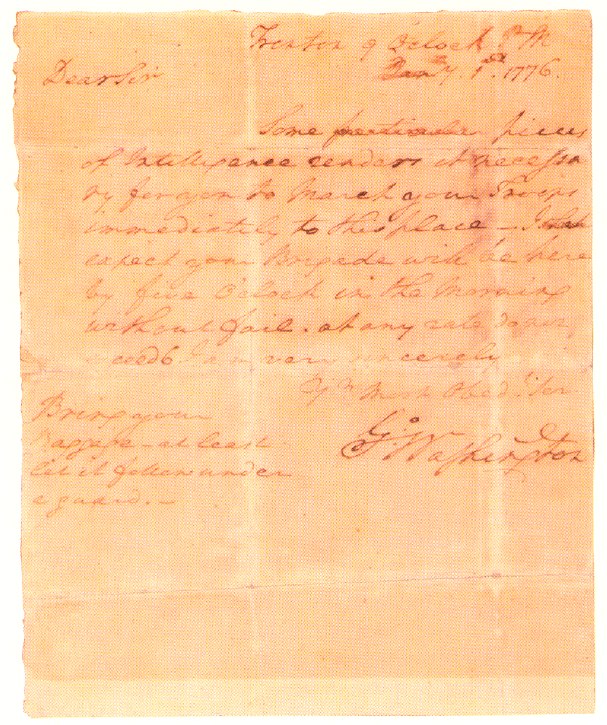American Revolution Manuscripts from Joe Rubinfine

American Revolution Manuscripts from Joe Rubinfine
Item 60 is a poignant letter from Samuel Scott, a Connecticut soldier serving in New York City in 1776. On September 8, he wrote home to his wife. Scott's spelling and grammar may not be that good, but it must be remembered that the ability to write at all was a notable skill in the day. Pens Scott, "...I hope & trust in the god of Armeys for our deliverance and Sucsess I hope you wont forgit me in your Praer to god So that If we Shold Never See one nothers face Anamor in this world we may meat in the heavan's above..." It seems likely that Scott did get to see his wife again, but he also continued to serve with Connecticut forces and died in 1778. $6,000.
Another soldier, Sargeant James Rix, wrote to his wife Miriam in Haverhill, Massachusetts, from Valley Forge on May 2, 1778. Coming out of the brutal winter, Rix is not well. "I am yet in the land of the living," he writes, "but not in So good health as I could wish..." He notes that he has suffered from smallpox, lameness in the legs made him barely able to walk for several weeks, and he was then hit by a fever and rheumatism. As if physical problems aren't worries enough, Rix had not heard from his wife in a long time, and that evidently added to his depression. "...I have sent you four Letters Since I have been on this Ground. And I have not known one," he writes. Fortunately, writing on the back of this letter indicates that Rix did survive and was back home in Haverhill the following year. Item 78. $9,000.
Item 80 is a call for assistance from George Washington on the evening of New Year's Day 1777. The addressee, "Dear Sir," is likely General John Cadwalader, whose troops would assist Washington in the Battle of Princeton two days later. Washington had accomplished his legendary crossing of the Delaware on December 26 and had defeated British troops in the Battle of Trenton. Now with a larger battle looming, he needed all the help he could get. Writes Washington, "Some particular pieces of intelligence renders it necessary to march your Troops immediately to this place. I expect your Brigade will be here by five O'clock in the Morning without fail, at any rate do not exceed 6..." The following day, Washington, with Cadwalader's assistance, would sneak his troops around the British for a successful attack on Princeton on January 3. These successes would enable the forces to survive the winter and begin generating more support both at home and abroad. The revolution continued. However, for all his great talents, Washington did make one very human mistake which you and I make every year. It being the first of the year, Washington mistakenly used the old year in writing the date. The letter is dated January 1, "1776," though it was actually written on the first day of 1777. This historic signed document is priced at $450,000.
Joe Rubinfine may be reached in Palm Beach, Florida at 561-659-7077, email www.joerubinfine@mindspring.com.